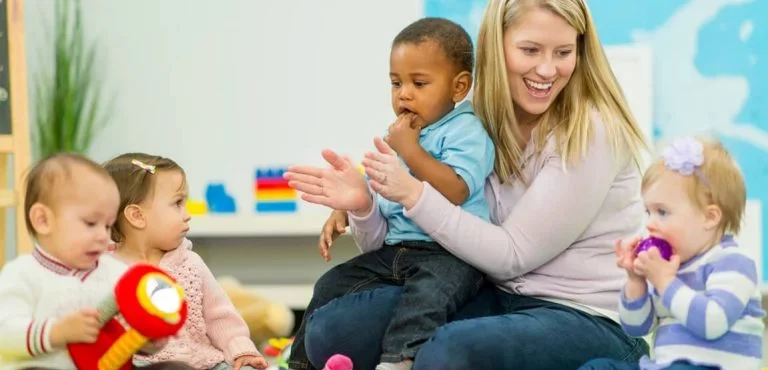
Running a childcare facility in North Carolina comes with significant responsibilities, especially when it comes to maintaining compliance with state regulations. The North Carolina Division of Child Development and Early Education (DCDEE) plays an important role in overseeing these facilities and enforcing penalties when violations occur. Understanding the range of potential penalties—from minor written reprimands to the most severe license revocations—is essential for any childcare provider committed to safeguarding their professional license and, most importantly, the children in their care.
Understanding Administrative Actions and Penalties
When DCDEE identifies violations at a childcare facility, they issue what is known as a Notice of Administrative Action. This formal notification outlines the penalty being imposed. If a licensee disagrees with the penalty, they have the right to appeal through the Office of Administrative Hearings.
Penalties can range from less severe written reprimands and written warnings to more serious licensing restrictions and revocation. While written reprimands and warnings are often the first steps, this article focuses on the spectrum of licensing penalties and what each means for a childcare facility.
Types of Licenses and Their Penalties
When a facility faces more serious issues, DCDEE may issue different types of licenses that come with specific conditions and oversight requirements. These include:
- Provisional Childcare Facility License
- Special Provisional Childcare Facility License
- Probationary License
- Revocation of License
Each of these licenses reflects the severity of the violation, the facility’s compliance history, and the oversight necessary to ensure safety and regulatory adherence.
Provisional Childcare Facility License
A provisional license is typically issued when DCDEE sees that the facility has made reasonable efforts to correct previous violations but requires more time to demonstrate full compliance. This license often accompanies a corrective action plan and can last anywhere from a few months up to a maximum of twelve months.
During this period, the facility is subject to increased oversight, typically with monthly visits from DCDEE representatives. The provisional license must be prominently posted at the facility so parents and visitors are aware of the status.
Smaller or less severe violations usually result in a shorter provisional license period, while more complex issues may require up to a year of monitoring.
Special Provisional Childcare Facility License
The special provisional license represents a step up in oversight and is issued for a maximum of six months. It is typically applied when there has been a determination of child maltreatment, although the children may not have been physically harmed.
This license involves more frequent visits—potentially weekly—to ensure the facility is addressing the violations promptly and thoroughly. The tighter timeframe and increased scrutiny reflect the seriousness of the maltreatment finding, even if no actual harm occurred.
Probationary License
The probationary license is reserved for situations where there is a substantiated finding of child maltreatment and evidence that the violation was willful. It may also be issued if a facility has failed to comply with the terms of a previous provisional license or written warning for the same violation.
Probationary licenses cannot exceed twelve months. This license indicates a serious breach of trust and safety, requiring stringent oversight and frequent compliance checks.
For example, if a facility was previously warned for lack of supervision and commits the same violation again within a relatively short period, a probationary license is likely to be imposed.
Communicating License Status to Parents and Staff
When a facility receives a provisional, special provisional, or probationary license, it’s important to communicate carefully with parents and staff. The license must be posted in a visible location, and parents will inevitably have questions.
Facilities should prepare clear, factual statements that avoid naming individuals or going into unnecessary detail. A simple message might explain that issues were identified and promptly corrected, assure that no children were harmed, and emphasize ongoing commitment to safety and compliance.
Training staff on how to respond to inquiries is also advisable, perhaps directing questions to the facility owner or manager to maintain consistent communication.
Revocation of Childcare Facility License
The most severe penalty is the revocation of the childcare facility license. This occurs when child maltreatment has been substantiated and a child has been harmed, or in cases of repeated egregious violations or deceit.
Revocation means the facility must cease operations immediately. While not common, revocations can also occur in situations where a child escapes from the facility, posing a serious safety risk even if no physical harm occurs.
In these cases, it’s critical to act swiftly. Facilities have 30 days from the date the revocation notice is sent—not received—to file a petition for a contested case hearing. Missing this deadline can forfeit the right to appeal.
Final Thoughts and Support
Penalties from DCDEE are designed to protect children and ensure high standards in childcare facilities across North Carolina. While receiving any administrative action can be stressful, it’s important to stay calm, understand the implications, and respond appropriately.
If you find yourself facing a notice of administrative action or have questions about compliance, seeking legal advice can be invaluable. Professional support can help you handle appeals and ensure your facility remains a safe and trusted place for children.
Thank you to all childcare providers in North Carolina for your dedication and hard work in caring for our community’s children. Staying informed and proactive about licensing requirements helps keep everyone safe and thriving.
*Nothing in this blog establishes an attorney-client relationship. Nothing in this blog is legal advice. If you have any questions, please check out our other blogs and our Youtube channel. You can also call us at 919-521-8810 with questions.

